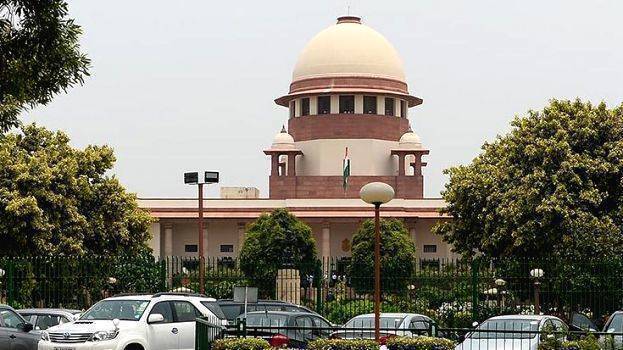




NEW DELHI: The Supreme Court will pronounce its orders on Monday in the matter relating to the constitutional validity of reservations of the economically weaker section (EWS) in higher education and issues of public employment on the basis of financial conditions.
In September last week, the constitution bench comprising Chief Justice Uday Umesh Lalit, Justice Dinesh Maheshwari, Justice S Ravindra Bhat, Justice Bela M Trivedi and Justice JB Pardiwala, has reserved the order after all the parties concluded their arguments.
Constitution Bench was dealing with issues relating to the Constitutional validity of reservations on the basis of economic conditions. The court has begun hearing the matter on September 13 and the hearing was heard for seven days.
The petitioners had submitted before the Supreme Court that providing reservation on the basis of economic criteria, excluding SC, ST and OBC Non-Creamy Layer, breaches the equality code.
The Centre has earlier submitted before the Supreme Court that EWS reservation does not violate the basic structure.
Then-Attorney General for India KK Venugopal submitted before the Supreme Court that for economically weaker sections (EWS), the reservation does not violate the basic structure doctrine.
He further argued that nothing has been altered for SC-ST, and OBC, but qualitatively the purpose of the EWS quota was not to touch the 50 per cent reservation. This 10 per cent is in a different compartment, he submitted.
The AG was defending the constitution's 103 amendments that provided for the EWS reservation before a constitutional supreme court bench.
Then-Attorney General For India KK Venugopal has also submitted an affirmative action amendment for the weaker sections of the society. EWS reservation does not erode rights given to SC, ST and OBC.
The constitutional validity of the 103rd Amendment Act, 2019 enabled the State to make reservations in higher education and matters of public employment on the basis of economic criteria alone. The Janhit Abhiyan petition is the lead matter.
Janhit Abhiyan's matter relates to the challenging constitutional validity of the 103rd Amendment Act, 2019 which enabled the State to make reservations in higher education and matters of public employment on the basis of economic criteria alone.
Moreover, the Janhit matter is being heard together with a case filed by the Andhra Pradesh government against the High Court's decision quashing its decision of granting reservations in education and public service for the entire Muslim population of the State in 2005.